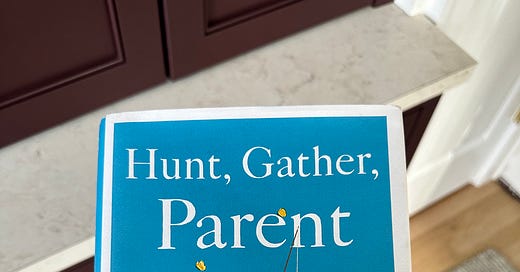I just finished Hunt, Gather, Parent and it really got me thinking about so many different things. Things here in America are very different than most everywhere else in the world. This book, along with may others that I’ve read, really point this out and open my eyes wider and wider each time. I want to break down some of the most important points that Michaeleen mentions throughout this book in this post today.
I hope to get the author, Michaeleen Doucleff on the podcast for an interview if possible but until then, here are my thoughts….
Alloparenting
First and foremost this book emphasizes the need for children to have several, if not many, caretakers that they can trust. “Some anthropologists believe that alloparenting* gives children something that sounds almost magical: trust in the world. Trust that your family will take care of you. Trust that the people in your neighborhood will take care of you. Trust that the forest will take care of you. Trust that the people you meet will be kind, warm, and helpful. Trust the world will provide for you.” This is the part in the book where you realize how different we really are here in America where the social support is dismal. Michaleen mentions Hadzabe families (hunter-gatherer Tanzanian indigenous ethnic group) and how they rely on alloparenting everywhere. All the women and men work with all the children, not just their own and they are one big family as opposed to every man for themselves. “Social support is so important for physical health that, in one study, having strong relationships correlated just as strongly with a longer life expectancy as being physically active or cutting out smoking.” Imagine that?
*an alloparent is anyone (besides the mother and father) that can take care of a child - this can be an adult OR an older sibling, neighbor, etc.
The book hypothesizes about what happened to the extended family over time and how we ended up so isolated here in America. But one thing is for certain, many families around the world do not function this way. Building a tribe can be difficult. Your parents may not live near you. You may not live in a neighborhood. This book really got me thinking about who my kids see as alloparents. We are incredible grateful to have many kids and neighbors on our street that function as alloparents as well as a tight inner circle. I do have to wonder though if things would have been different/easier if we had the knowledge of our elders when it comes to raising children…….
Keep reading with a 7-day free trial
Subscribe to Badass Matriarch to keep reading this post and get 7 days of free access to the full post archives.





